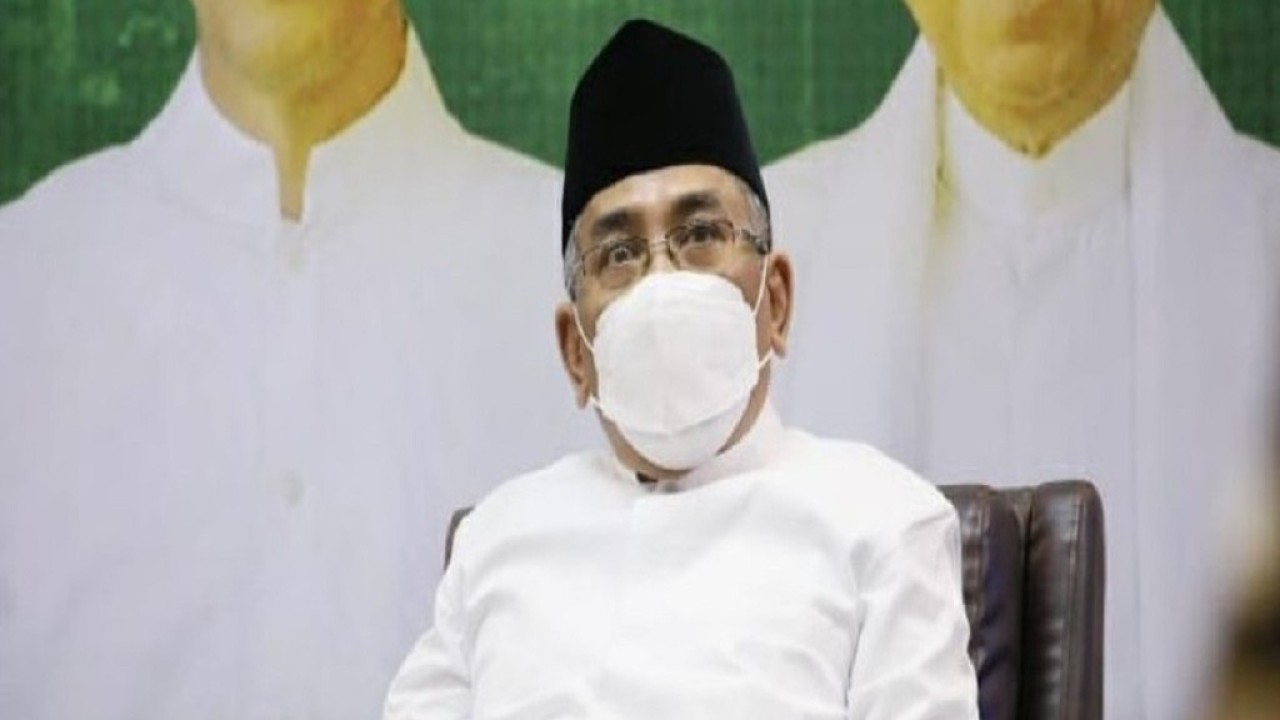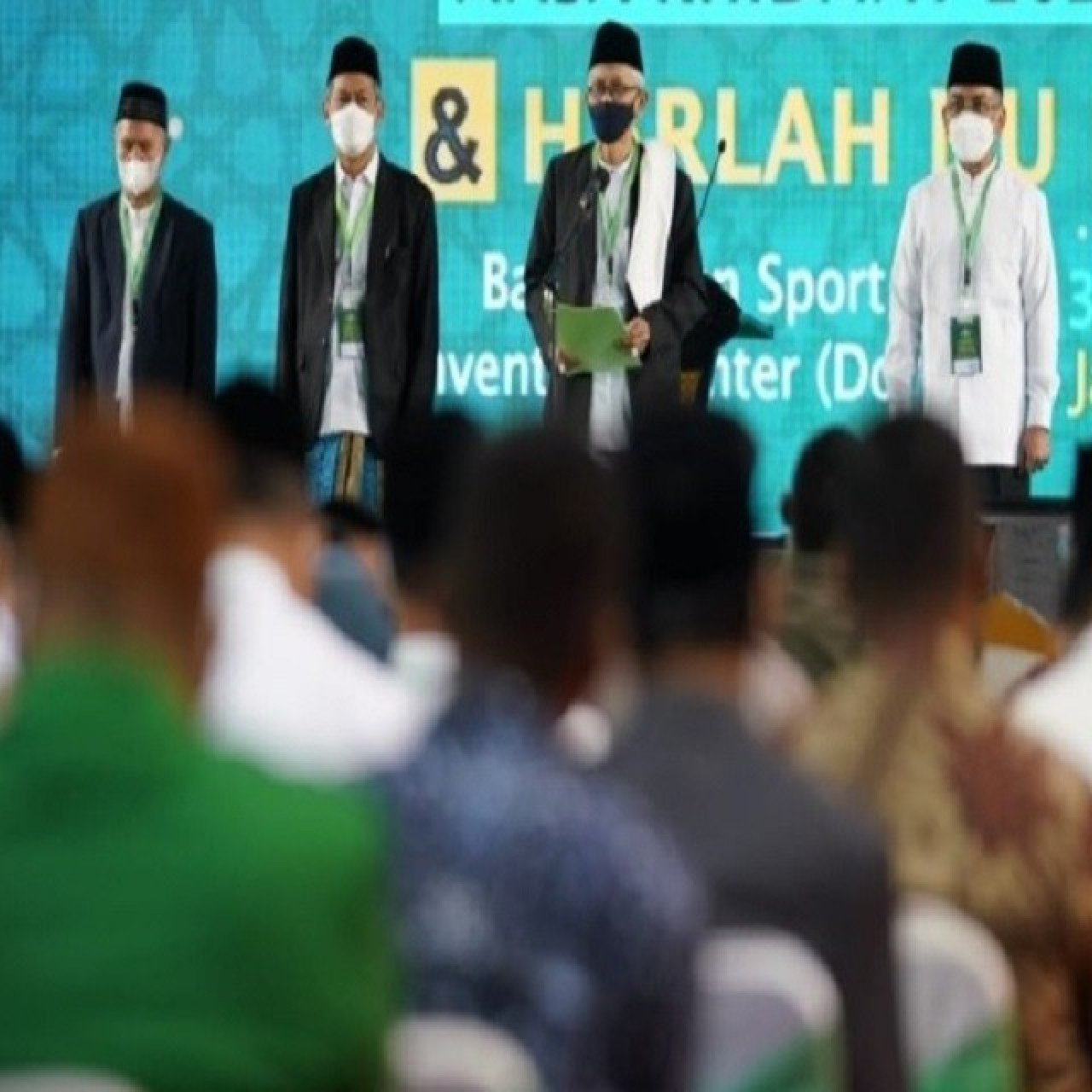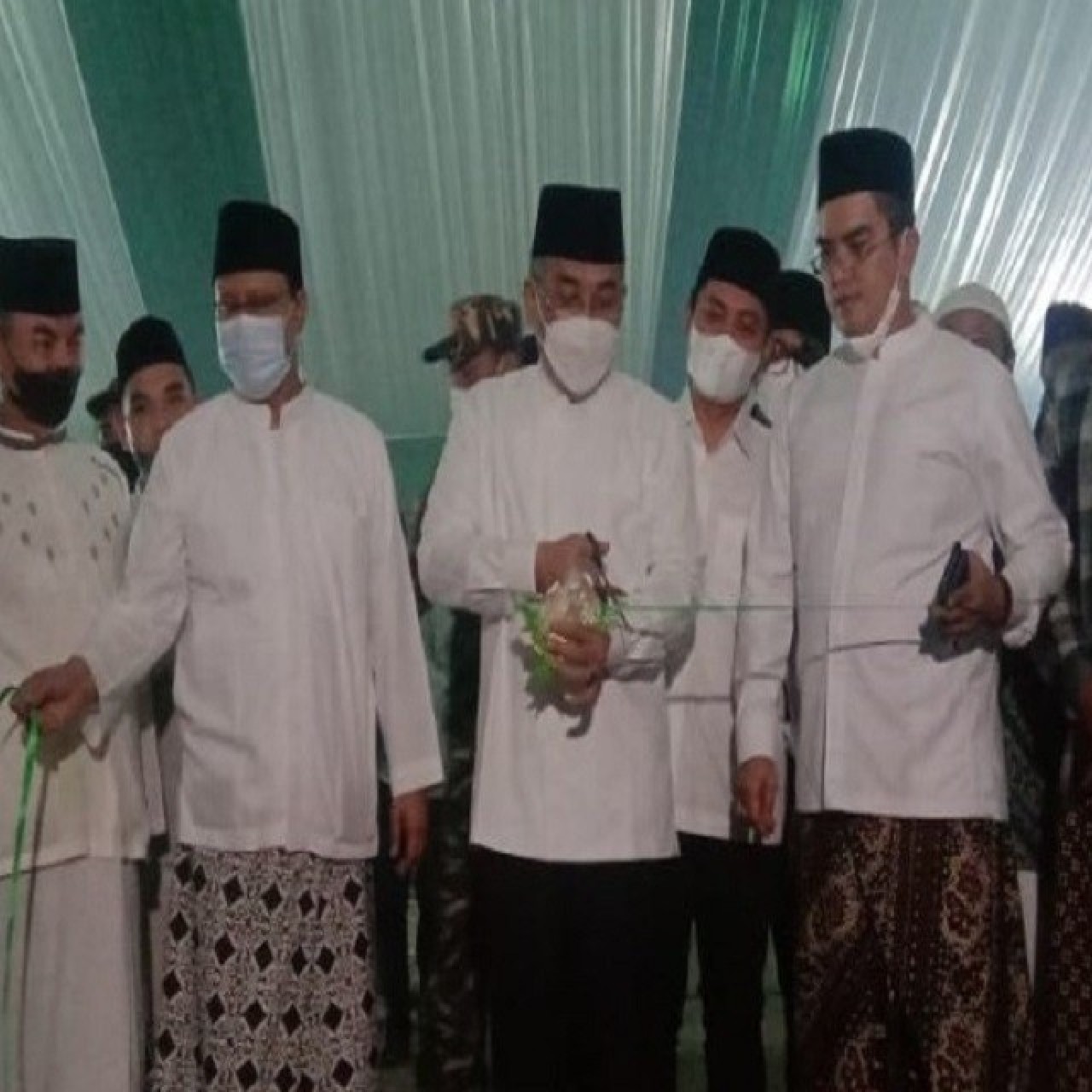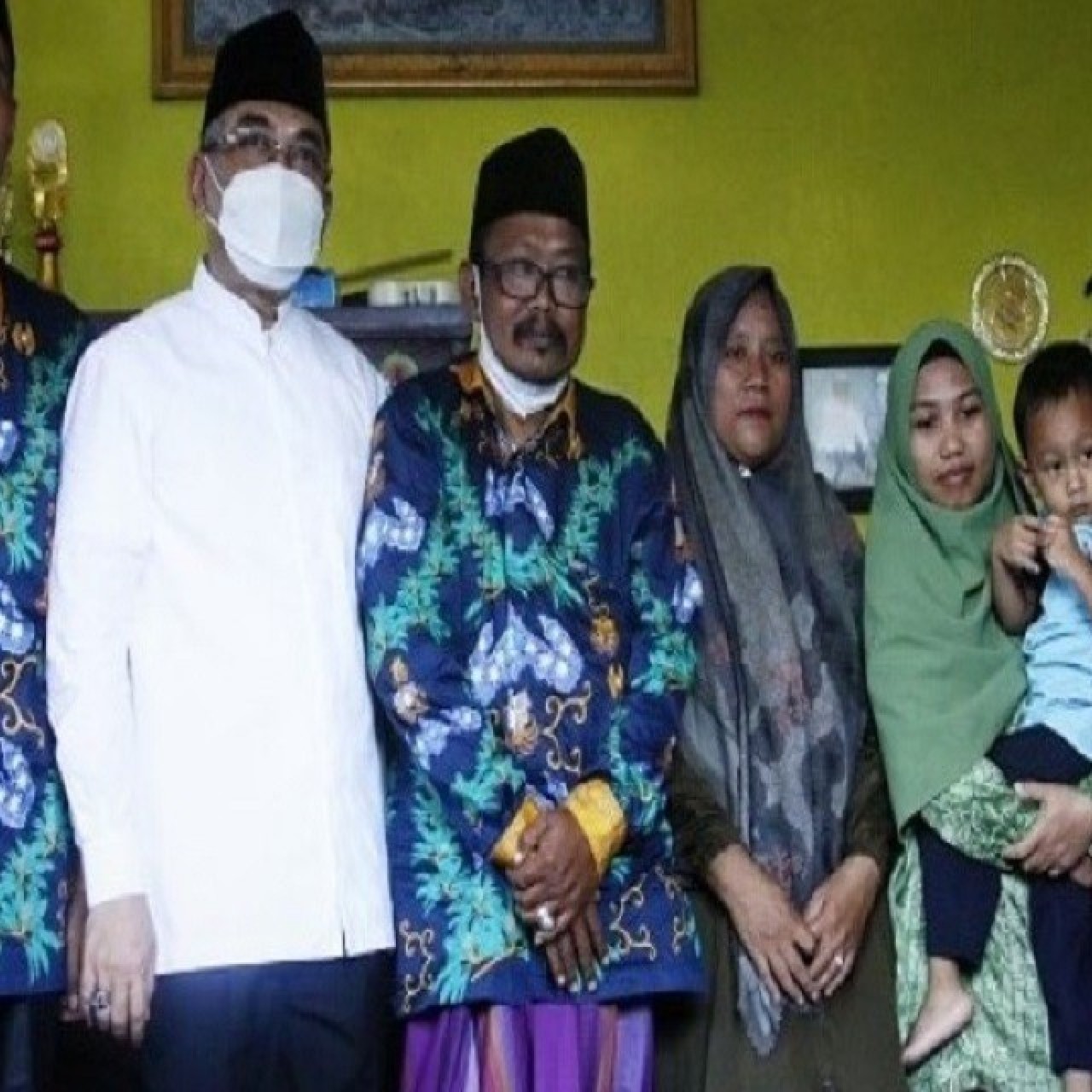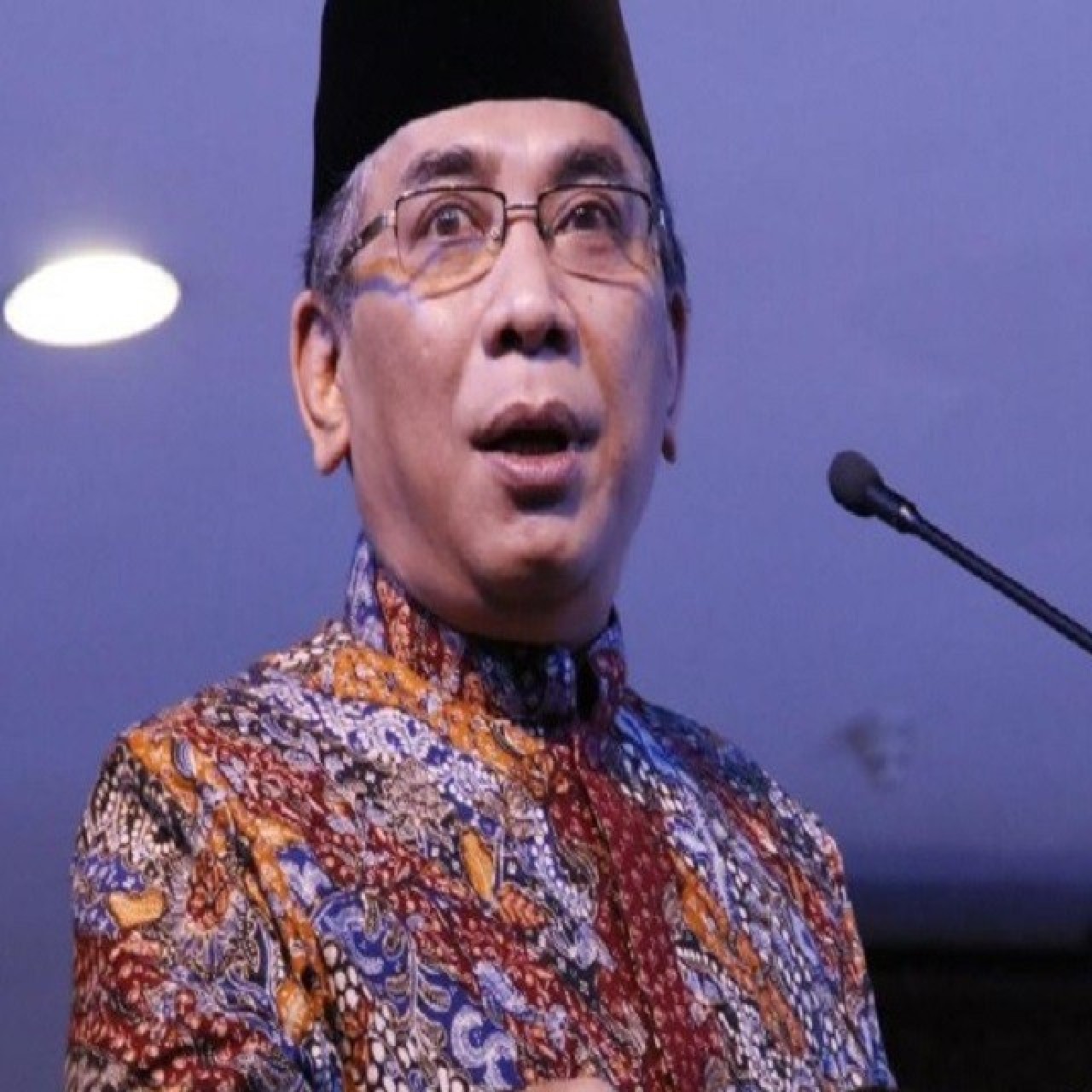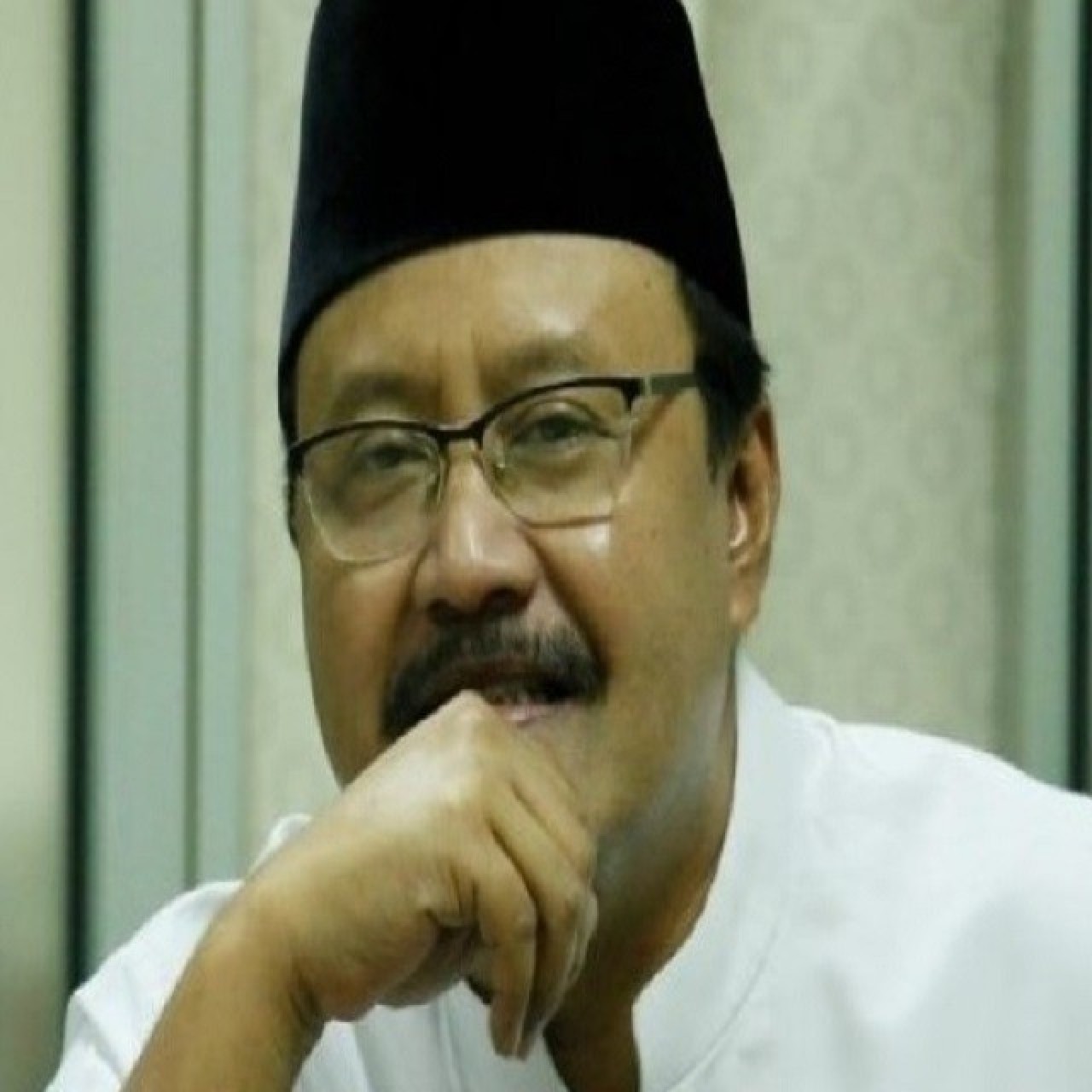PBNU tanfidziyah work divided in different activity fields
NU Online · Rabu, 2 Februari 2022 | 19:14 WIB
Jakarta, NU Online
The General Chairman of the Executive Board of Nahdlatul Ulama (PBNU) KH Yahya Cholil Staquf (Gus Yahya) divided the fields of work in the tanfidziyah ranks. This was announced during the inaugural meeting after the Inauguration of the 2022-2027 PBNU in Balikpapan City, East Kalimantan, Monday (31/1/2022).
The division of the fields of work is dynamic. An administrator who has been divided into certain fields of work does not mean that he cannot participate in other fields of work. Gus Yahya reminded, if there were ideas and initiatives that could be shared, they could still be carried out flexibly between fields.
"We will continue to evaluate this periodically and later it is very possible in every semester or every year there is a change in the formation of the new division of fields for PBNU personnel. Please don't complain, because clearly in this tanfidziyah, you will become real administrators," said Gus Yahya.
In general, there are four divisions that will be directly controlled by the four deputy chairmen of PBNU. The following is a list of tanfidziyah administrators and their respective fields of work:
First, the field of religion and institutional relations which are under the supervision of the Deputy Chairman of PBNU KH Zulfa Mustofa. Under him, religion and institutional relations become separated.
In the religious field, four PBNU chairmen will be managed by KH Hasib Wahab Chasbullah, KH Ahmad Fahrurrozi, KH Muhammad Thambrin, and KH Sarbin Sehe. Administratively, these chairmen will be assisted by three deputy general secretaries of PBNU, namely KH Maksum Faqih, M Silahudin, and H Nur Hidayat.
This field will involve six institutions, namely the Nahdlatul Ulama Da'wah Institute (LDNU), the Nahdlatul Ulama Bahtsul Masail Institute (LBMNU), the Nahdlatul Ulama Falakiyah Institute (LFNU), the Nahdlatul Ulama Land and Endowment Institution (LWPNU), the Nahdlatul Ulama Mosque Development Institute (LTMNU). ), and Rabithah Ma'ahid Islamiyah Nahdlatul Ulama (RMINU).
Meanwhile, in the field of institutional relations, four PBNU chairmen will be managed by Hj Khofifah Indar Parawansa, H Umarsyah, and H Amiruddin Nahrawi. The three will be assisted by two deputy secretaries general, namely Muhammad Aqil Ihram and Lukman Hakim.
In this field, nine autonomous bodies will be involved, namely Muslimat NU, Fatayat NU, Ansor Youth Movement, Nahdlatul Ulama Student Association (IPNU), Nahdlatul Ulama Female Student Association (IPPNU), Indonesian Islamic Student Movement (PMII), Nahdlatul Ulama Teacher Association (Pergunu Ulama), Jamiyah Ahlith-Thariqah Al-Muktabarah An-Nahdliyah (Jatman), and Jamiyyatul Qurra wal Huffazh Nahdlatul Ulama (JQHNU).
Second, the economic and environmental fields as well as people's welfare and culture. This field of work will be directly controlled by the Deputy Chairman of PBNU KH Sayyid Muhammad Hilal Al-Aidid.
The economic and environmental fields are managed by four PBNU chairmen, namely KH Abdul Hakim Mahfudz, H Aizuddin Abdurrahman, H Arif Rahmansyah Marbun, Fahrizal Yusuf Affandi, and H Nasyirul Falah Amru. These chairmen will be assisted by three deputy secretaries general, namely H Rahmad Hidayat, Isfandiari Mahbub Djunaidi, and H Andi Sihabuddin.
This field will involve two institutions and two autonomous bodies, namely the Nahdlatul Ulama Economic Institute (LPNU), the Nahdlatul Ulama Agricultural Development Institute (LPPNU), the Nahdlatul Ulama Fishermen's Union (SNNU), and the Indonesian Muslim Workers Union (Sarbumusi).
Meanwhile, in the field of people welfare and culture, the three PBNU chairmen will be managed by Alissa Qotrunnada Munawaroh Wahid, H Mohammad Jusuf Hamka, and H Eman Suryaman. They will be assisted by three deputy general secretaries of PBNU namely Imron Hamid, Ai Rahmayanti, and Taufiq Madjid.
The people welfare and culture sector will involve four institutions, namely the Nahdlatul Ulama Health Institute (LKNU), the Nahdlatul Ulama Family welfare Institute (LKKNU), the Institute for Disaster Management and Climate Change (LPBI), and the Indonesian Muslim Cultural Arts Institute (Lesbumi).
Third, the field of education and law will be directly supervised by the Deputy Chairman of PBNU H Nizar Ali. This field will be managed by five PBNU chairmen namely Amin Said Husni, Moh Mukri, Zainal Abidin Rahawarin, Padang Wicaksono, and Mohamad Syafi' Alielha.
There are three deputy general secretaries of PBNU who will assist the five chairmen, namely Muzakki, Abdul Qodir, and Lukman Umafagur. The field of education and law involves four institutions, namely the Ma'arif NU Educational Institution, the Nahdlatul Ulama Higher Education Institution (LPTNU), the Nahdlatul Ulama Ta'lif wa Nasyr Institute (LTNNU), and the Nahdlatul Ulama Legal Aid and Counseling Institute (LPBHNU).
Fourth, the field of organization, membership and regeneration will be directly controlled by Deputy General Chairman Nusron Wahid. The organizational field will be managed by the four PBNU chairmen, namely Ishfah Abidal Aziz, Agus Zainal Arifin, Abdullah Latopada, and Choirul Sholeh Rasyid.
The chairmen will be assisted by three PBNU deputy general secretaries, namely Faisal Saimima, Mas'ud Saleh, and Sulaiman Tanjung. This field will involve the Nahdlatul Ulama Amil Zakat, Infaq, and Alms Institute (LAZISNU).
Meanwhile, in the field of membership and regeneration, it will be the task of the three PBNU chairmen, namely KH Miftah Faqih, H Ulyas Taha, and H Robikin Emhas. The deputy general secretary of PBNU involved in helping this field are Najib Azka, A Syarif Munawi, and Muhammad Faesal. This field will involve the NU Institute for Human Resource Studies and Development (Lakpesdam).
Then under the General Secretary of PBNU H Saifullah Yusuf, there are ten areas of work that will be handled by the deputy general secretary of PBNU. First, the fields of law and cooperation are handled by Abdul Qodir and Sulaeman Tanjung.
Second, the membership sector is handled by Lukman Khakim and Taufik Madjid. Third, the field of data and information is handled by Isfandiari Mahbub Djunaidi and Nur Hidayat. Fourth, Muhammad Faesal and KH Maksum Faqih are in charge of regeneration and human resources.
Fifth, M Silahuddin and Mas'ud Saleh are in charge of housekeeping and protocol. Sixth, general administration and archives are handled by Faisal Saimima and A Syarif Munawi. Seventh, Rahmat Hidayat P and M Aqil Irham are in the field of asset management.
Eighth, the areas of program plans and reports are managed by Lukman Umafagur and Ai Rahmayanti. Ninth, public relations and inter-institutional relations are managed by Imron Hamid and Najib Azka. Tenth, Andi Sihabuddin and Prof. Muzakki will serve in the field of NU regional and branch development.
Reporter: Aru Lego Triono
Editor: Sudarto Murtaufiq
Terpopuler
1
Khutbah Jumat: Ramadhan dan Kesempatan yang Tidak Selalu Terulang
2
Innalillah, Ulama Mazhab Syafii asal Suriah Syekh Hasan Hitou Wafat dalam Usia 83 Tahun
3
Khutbah Jumat: Ramadhan, Melatih Sabar, Memperkuat Syukur
4
Kultum Ramadhan: Lebih Baik Sedikit tapi Istiqamah
5
Keluar Mani yang Tidak dan Membatalkan Puasa
6
Khutbah Jumat: Tiga Kebahagiaan Orang Puasa
Terkini
Lihat Semua

